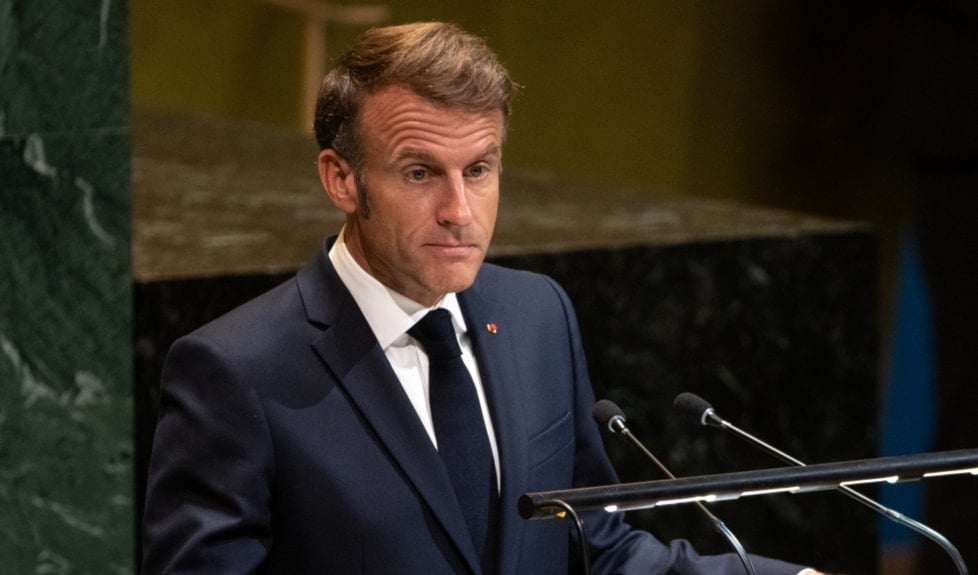France to respond to 'Russian airspace violations', Macron says
French President Emmanuel Macron says France may act if a Russian plane violates European airspace and calls for continued cooperation on the European fighter jet project.
-

France's President Emmanuel Macron addresses the 80th session of the United Nations General Assembly, Tuesday, Sept. 23, 2025, at U.N. headquarters. (AP)
French President Emmanuel Macron said Wednesday that France would not rule out taking military action if a Russian aircraft were to violate European airspace.
"In accordance with the doctrine of strategic ambiguity, I can tell you that nothing is ruled out," Macron stated in an interview with the German daily Frankfurter Allgemeine Zeitung.
In the same interview, Macron emphasized the importance of maintaining cooperation between France and Germany on the development of a next-generation European fighter jet.
"Arms companies on both sides are claiming leadership," he said. "It is therefore up to us to stay the course of what we consider to be in the general Franco-German interest and to continue working on joint solutions."
The European fighter jet program, which also includes Spain, has faced delays and disputes over leadership and industrial roles.
NATO at odds
The remarks highlight common concerns Europe has voiced recently, after Denmark and Poland both reported drone sightings in their airspace, which they linked to Russia.
In response to rising Russian drone activity, defense ministers from ten EU countries agreed on Friday to prioritize a drone wall across Europe.
EU Defense Commissioner Andrius Kubilius emphasized the urgency of the situation, stating: “We need to move fast... and we need to move, taking all the lessons from Ukraine and making this drone wall together with Ukraine.”
CNN last week reported that NATO continues to expose its internal fractures, with member states unable to agree on how to react to what they claim are Russian airspace violations. While some governments demand an aggressive stance, others are warning against reckless escalation that could backfire on the alliance itself.
The rift was laid bare during an emergency session of the North Atlantic Council on Tuesday, called at Estonia's insistence. Officials told CNN that Estonia and Poland pushed for NATO's final communiqué to explicitly threaten a military response to any future Russian overflights. Yet Germany and several southern European members balked, arguing such posturing would do little more than play into Moscow's hands.
Read more: Poland seeks to overstep NATO to allow downing jets over Ukraine

 2 Min Read
2 Min Read











